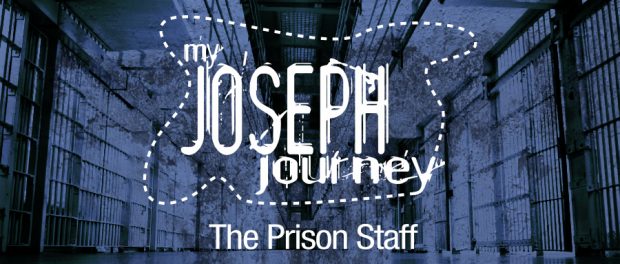My Joseph Journey – The Prison Staff

I use the term prison staff to keep the label deliberately ambiguous. Most outsiders would simply call them “guards” collectively. Most insiders call them “COs” (pronounced “see ohs”, short for corrections officers) or “cops” (a grossly inaccurate term for me, but good enough for those who buck any authority). However, in reality, there’s a distinction within the group.
Two Groups, One Attitude
A CO is what most think of when they imagine a prison’s employees, but technically there is still a group of employees who offer administrative support for the organization. A prison has everything from the warden and his/her administrative team to the lowly IT guy who fixes printers. There are social workers (with variable titles), secretaries, and more. However, from an inmate’s perspective, they’re all COs (or cops).
This grouping may be technically inaccurate, but it’s a valid lumping together. Galatians 5:9 offers, “A little leaven leavens the whole lump of dough” (NASB). The leaven, in this case, is the attitude of the staff toward the inmates. On both sides of the administrative fence, almost without exception, prison staff treat inmates as if they are subhuman. They have broken the law and have so forfeited the rights of respect, courtesy, or even decency.
I don’t mean to suggest they were abusive. Far from it in most cases. This was something far more subtle yet almost as insidious. You see, abuse would be — in its own perverse way — an acknowledgement of an individual’s identity. If I’m abusing you, it means I’ve recognized you. The typical position of most inmates is far below that level of recognition. That may be why some buck the system: a subconscious need to be recognized as a human being worthy of notice.
Not Human Anymore
The subtlety of this effect was lost on me for the most part until my sentence was nearing its end. I met a CO who treated inmates with common courtesy, and it made me immediately suspicious. Being spoken to like a normal human being (a simple “Hello” with a smile) made me wonder what angle was being worked by this CO. It was weeks into this suspicion, watching this CO keep up this attitude without deviation, before I realized something was wrong with me and not the CO.
The Holy Spirit’s conviction hit me like a ton of bricks. I had let the culture shift my perspective so much that common decency was suspect. I shuddered at the revelation. I had become ingrained in the microcosm of prison life so deeply that this breath of fresh air, this reminder of what life is like on the outside, disturbed me.
All I saw was the CO’s uniform, not the person. I saw a position, not a person. I saw a cop, not a human being.
I had become the very thing I despised in the staff: I had internalized the idea that someone else was less than human.
And in so doing, I had become less than human myself.
Repentance
As with any other time when the Holy Spirit comes knocking, repentance was my only way out. I confessed my sin to the Lord, and to my wife. I even approached this CO and expressed appreciation for the wholesome attitude they presented.
I then spoke with some of my fellow inmates about my experience. I soon came to see that many others had felt similar reservations, and God was able to reach into the hardened hearts of the men around me as a result. My Joseph Journey is — if nothing else — a repeated illustration of God’s capacity to take someone’s screw-up and shape it by His power into something productive and healthy.
Originally posted 2017-01-09 08:00:34.


Leave a Reply